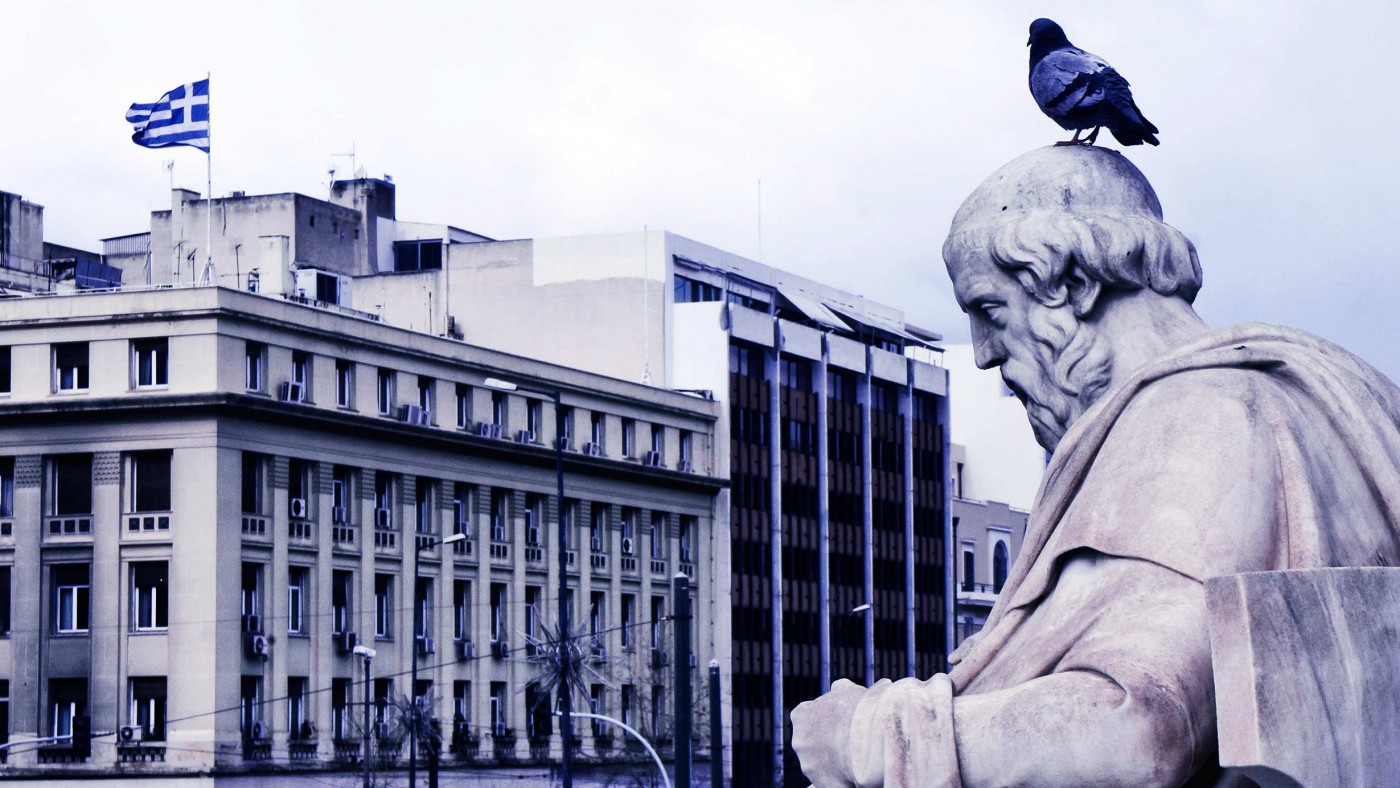This is the weekly newsletter from Iain Martin, editor of CapX. To receive it by email every Friday, along with a short daily email of our top five stories, please subscribe here.
In Medea, a play by the tragedian Euripides first performed in 431 BC, things quickly get messy and even more convoluted than the plot of Homeland, season 4. The plot of Medea is so confusing that it reminds me of what is happening in Greece today, with the economic situation deteriorating and the country’s incompetent Socialist government struggling to get a deal. This evening, the Greek PM Alexis Tspiras has delivered a furious rant rejecting the proposals from creditors and saying they are bluffing. Oh dear.
A friend, who is a leading theatre director, says that Medea does indeed make a good parallel. She takes up the story: “Medea (the Eurozone) is in a mess. Jason (Greece) has betrayed Medea by marrying Creon’s daughter (going bankrupt and agreeing to an impossible bailout repayment plan.) Medea tricks Aegeus (the IMF) into offering her sanctuary, and then tricks Jason into accepting some cursed gifts (a new bailout plan.) Jason’s new wife (the first bailout plan) goes up in flames. After watching the carnage Medea then kills their children – ie the Eurozone throws Greece out – and she and Jason have a final terrible argument. (Massive Eurozone/Greece row.) Medea (Eurozone) then goes off in her dragon-drawn chariot and Jason (Greece) is emotionally destroyed. Too contrived? I don’t think so…”.
Almost two and half thousand years later, the on-going shenanigans in the Eurozone have been almost as drawn out as a play by one of the ancient Greeks, although the modern day debt crisis has produced even fewer laughs than Euripides did. As for the poor Greek people, the events of recent years have produced a tragedy in terms of increased unemployment and reduced access to basic services.
As the economics editor of Sky News, Ed Conway, made clear in a great piece of reporting on his blog from Greece today, the human cost is high. He says:
“I’ve been in developing countries facing fiscal and capital market crises. But I’ve never been in a developed economy like this as it literally runs out of money. I’ve never been to a hospital where the director says he is essentially having to treat patients with no money, where people are not able to get treatments because they, and the hospital, can’t afford them. It is an unsettling experience — made more so by the fact that even those in authority seem next-to-clueless about what is really happening. Usually when you’re covering economics or politics you assume that someone, somewhere knows what’s going on and has a plan. Here, with the best will in the world, I simply don’t think there is one.”
In the midst of this disaster, produced by the crazy decision to allow Greece into the Euro and the reluctance of successive Greek governments to face market realities until it was too late, Greece’s debt is heading for 180% of UK GDP later this year. Migrants and refugees also continue to pour into Greece’s islands, despite the country’s difficulties. According to the UNHCR, 42,000 have arrived since January and many more are likely on the way.
This Greek debt crisis represents an epic failure of European leadership. It is fashionable to talk of Chancellor Angela Merkel as though she is a magician, blessed with supreme political skills that have made her the most powerful figure in the EU. But what use is all that power, esteem and regard at home if the quality of statesmanship she displays on the European stage ends up being of such a low quality that little meaningful gets done? When Merkel’s reign finally ends, with what great reform or continental initiative will she be associated? This latest Greek drama has been running for five years, and there is still no sense that the great powers of Europe are across it properly.
Below are my five picks from the last week on CapX. I am grateful to Rachel Cunliffe, deputy editor of CapX and a classicist, for additional guidance on the theatre scene in ancient Greece. She suggested that the Eurozone crisis is reminiscent of the plot of Oresteia, a trilogy by Aechylus, which to me sounded a bit like the Godfather parts I, II and III crossed with 12 Angry Men.


